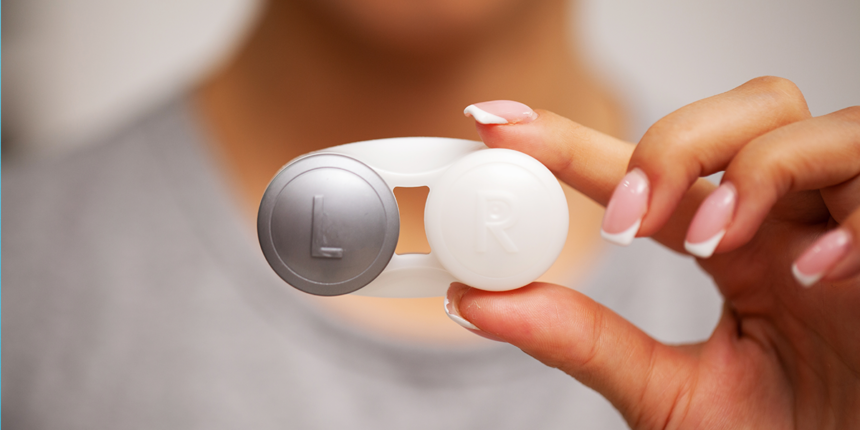Even though fashionable frames are still in style right now, your child might one day express an interest in contact lenses. Medically designed to be worn directly on the eye, contact lenses are thin, curved pieces of silicon hydrogel or plastic. These nearly invisible, ultra-thin contact lenses offer crystal-clear vision and freedom from frames, opening up a world of optical possibilities while keeping your eyes comfortably on point.
Is my child ready to wear contact lenses?
The response is not straightforward. To correct vision, contact lenses are frequently prescribed to children and adolescents. However, numerous considerations need to be made when using lenses for this age group. Counseling your optometrist for a nitty gritty assessment of your youngster’s eye before utilizing contacts is ideal.
- Contact lenses are generally recommended for ages older than 11, but they can be used by children as young as 8.
- The child should be careful enough to handle the contact lenses.
- The child must responsibly follow the recommended wearing schedule of the lenses
- Children should adhere to good hygiene practices that prevent eye infections.
- A child’s eyes must be examined to rule out any issues like dry eyes, allergies, infections, or any rare genetic disorder of the eyes.
- Specific visual needs must be considered, like sports activities where glasses might be less practical.
Also, Check: eczema
Are there any risks associated with using contact lenses?
Be it a visual error correction or cosmoses of your child, contact lenses carry risks, which may increase to many folds if not used properly.
- Children may rub or scratch their eyes while inserting or removing lenses, resulting in irritation of the eyes.
- Please practice proper hygiene or clean and store lenses correctly to avoid contamination of lenses and, ultimately, eye infections.
- Some children are sensitive to lens materials or cleaning solutions, which can cause allergic reactions.
- Children not following recommended wearing schedules are at risk of reduced oxygen supply to their cornea, potentiating corneal damage.
- Rough handling of contact lenses by children can result in cracks in the lens
- If the eye is not adequately lubricated, the lens may become dislodged to the back of the eye.
- If not worn consistently, fluctuating visual corrections can lead to headaches and a decline in daily and academic performance.
- Children are more prone to losing their lenses, which can be costly.
How can I ensure the safety of contact lens usage?
Utilizing contact lenses can be a protected and helpful method for remedying vision. Yet, it’s vital to observe rules for well-being to keep away from inconveniences. When wearing contact lenses, follow these safety guidelines:
- Always use contact lenses for your child on the prescription of your eye care specialist.
- Please encourage your child to thoroughly wash their hands with soap and water before handling contact lenses and dry them with lint-free towels.
- Ensure your child handles the lens carefully, avoiding contact with fingernails or sharp objects.
- Cleans and disinfect your child’s lenses as recommended by your optometrist. Never use tap water or saliva to cleanse the lenses.
- Regularly replace the storage solution of lenses.
- Ensure your child does not overwear the lenses as it may hinder the oxygen delivery to the cornea.
- Your child should take off their lenses before bed unless prescribed with extended-wear lenses.
- Advise your child to carry a backup pair of lenses or eyeglasses for unexpected lens-related emergencies.
Also, Check: boils
When should I seek medical care for contact lens issues?
Be aware of the symptoms of eye infections and contact lens-related complications. If you notice any of these side effects in your kid, eliminate the focal points and counsel your eye care supplier immediately.
- The lens gets dislodged and doesn’t come back even after lubrication.
- Your child has excessive tearing, redness, pain, or itching in the eyes despite removing the lenses
- The child experiences sudden, significant blurring of the vision
- Your child becomes unusually sensitive to light upon wearing contact lenses
- A gritty sensation in the eyes doesn’t settle by taking the lenses off.
For more detailed guidance and helpful resources and to get in touch with Dr. Owais Rafiq, contact us.

